
If you’ve ever seen confusing terminology such as GVWR, GCWR, dry weight, curb weight, and tongue weight and asked yourself: what do they mean and why should I care?
You’re in the right place.
In this article, we break down the most important weight related terms using simple explanations and visuals so you can be confident the next time you decide to drive or tow an RV.
Let’s go.
Understanding your vehicle's weight rating
Knowing and understanding your vehicle's weight rating is essential. While you may have the same make and model year vehicle as your friend, your GVWR and payload could be quite different.
Why?
Your vehicle's weight depends on more than the make and model year. Your trim level, engine, interior and exterior modifications, towing or climate packages, roof racks, and anything else you can add or take off the vehicle can affect the weight. In addition, common modifications, like adding a lift or changing your wheels or tires, can affect your vehicle's weight and towing capacity.
Check out this helpful GVWR and payload calculator to calculate your towing capacity.
Locating your vehicle’s weight rating
Original equipment manufacturers (OEM) determine weight safety ratings and publish these ratings in your vehicle’s owner manual. In addition, the OEM typically mounts a safety standards sticker inside the driver or passenger’s door frame. Safety standards stickers contain your vehicle’s weight ratings and tire information.
Since motorhome manufacturers build the livable space onto a prebuilt truck or van chassis, you may find more than one safety standards sticker on your rig.
If you’re looking for the safety standards sticker on a trailer, look outside the trailer near the hitch or inside the trailer near a door or control center.
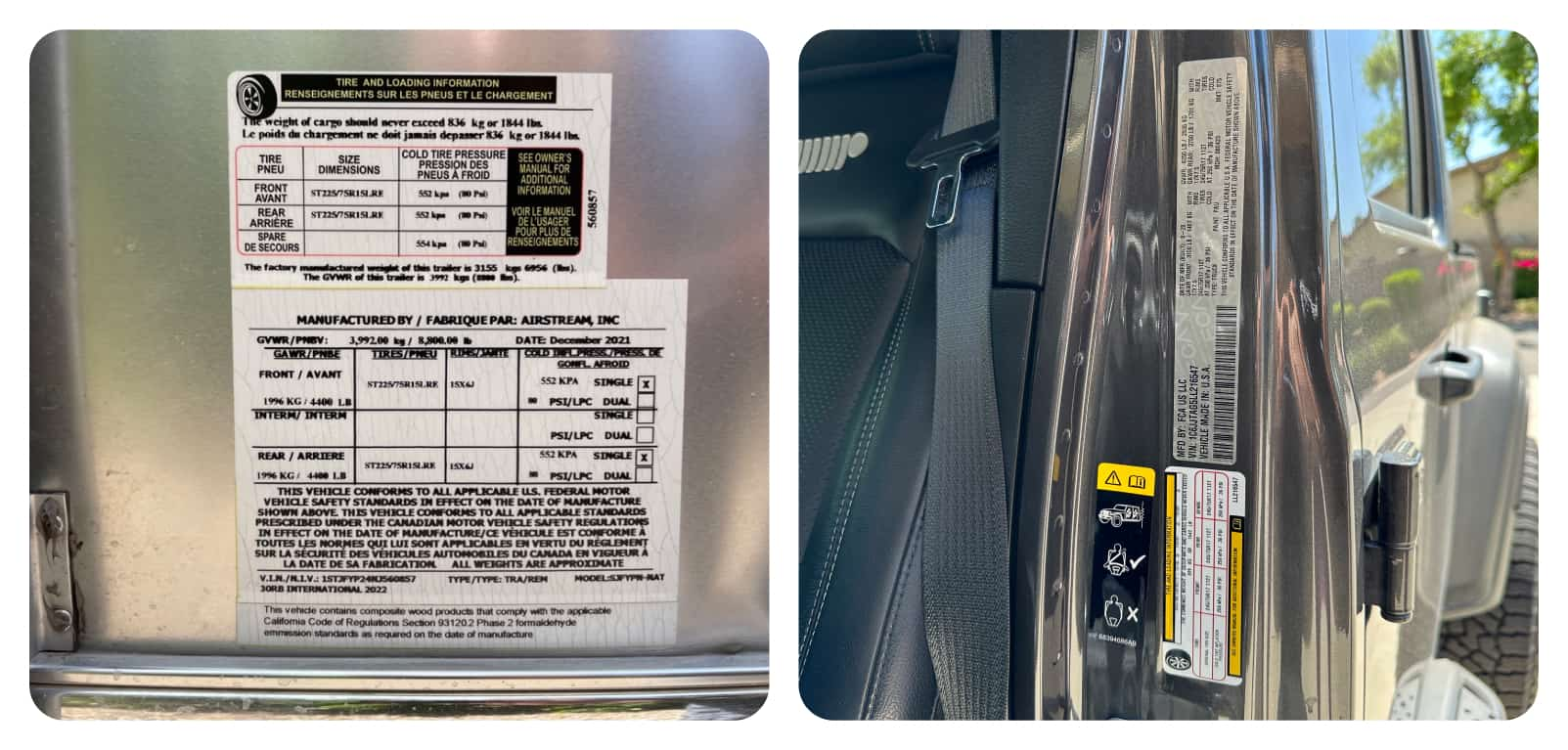
Towing terminology
Tongue weight
The amount of weight placed on the hitch ball.

Curb weight
Curb weight is the weight of an empty vehicle, its standard equipment, and a full fuel tank.
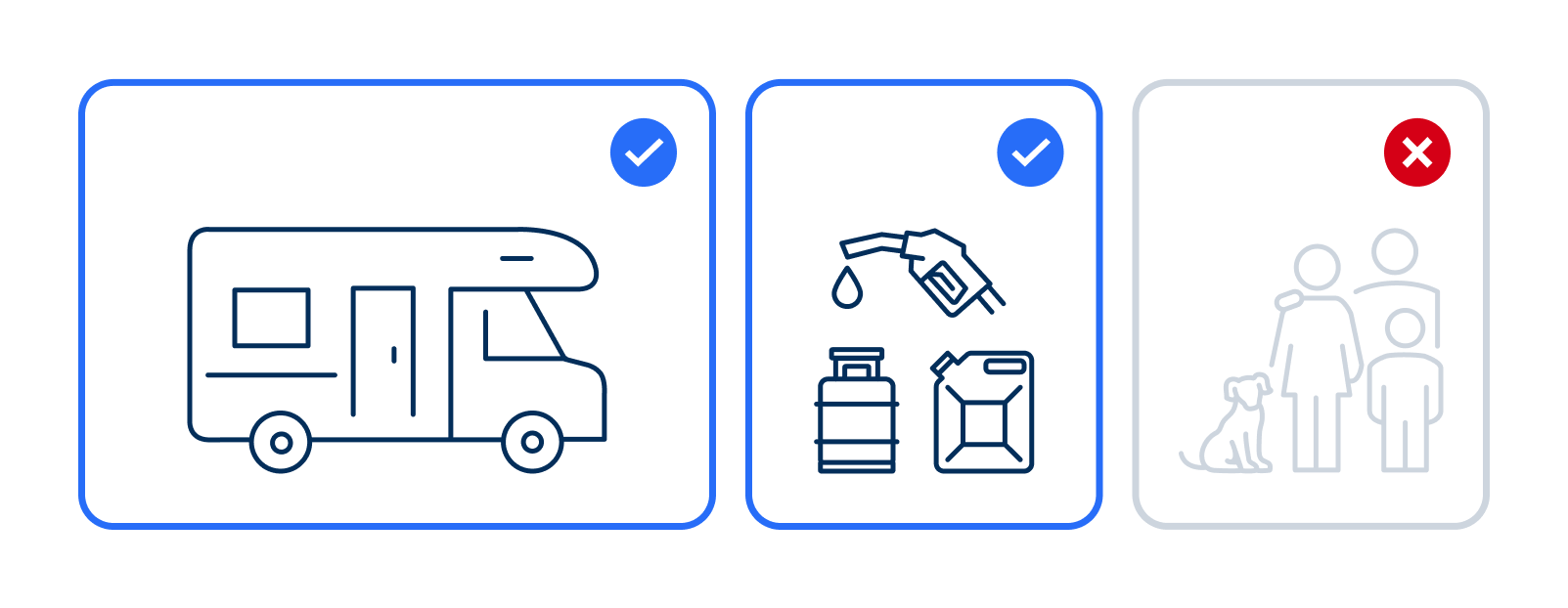
Gross vehicle weight rating
Gross vehicle weight rating (GVWR), sometimes called the gross trailer weight rating (GTWR), is the maximum value a vehicle's weight can operate safely when loaded. The GVWR is also sometimes called the fully loaded weight.
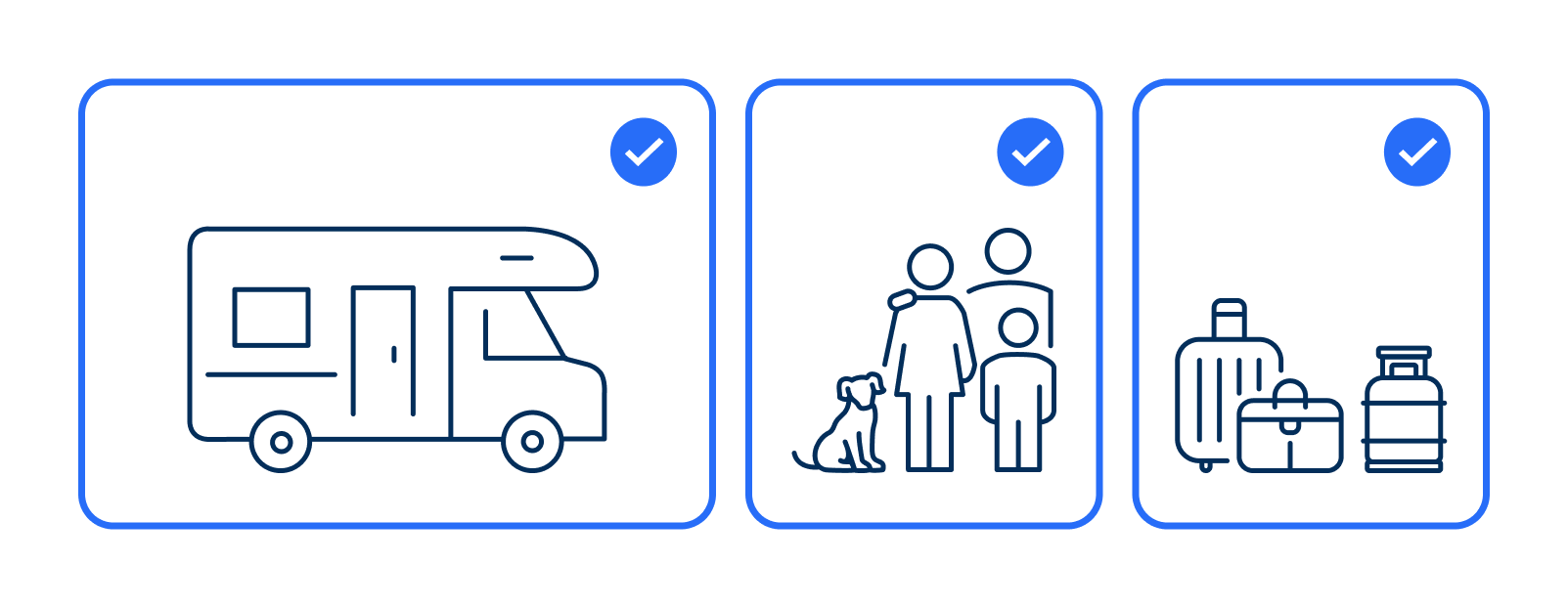
Gross combined weight rating
Gross combined weight rating (GCWR), sometimes referred to as gross combined vehicle weight rating (GCVRW), is the maximum value a combination of loaded vehicles (like a truck towing a travel trailer) can operate safely together.
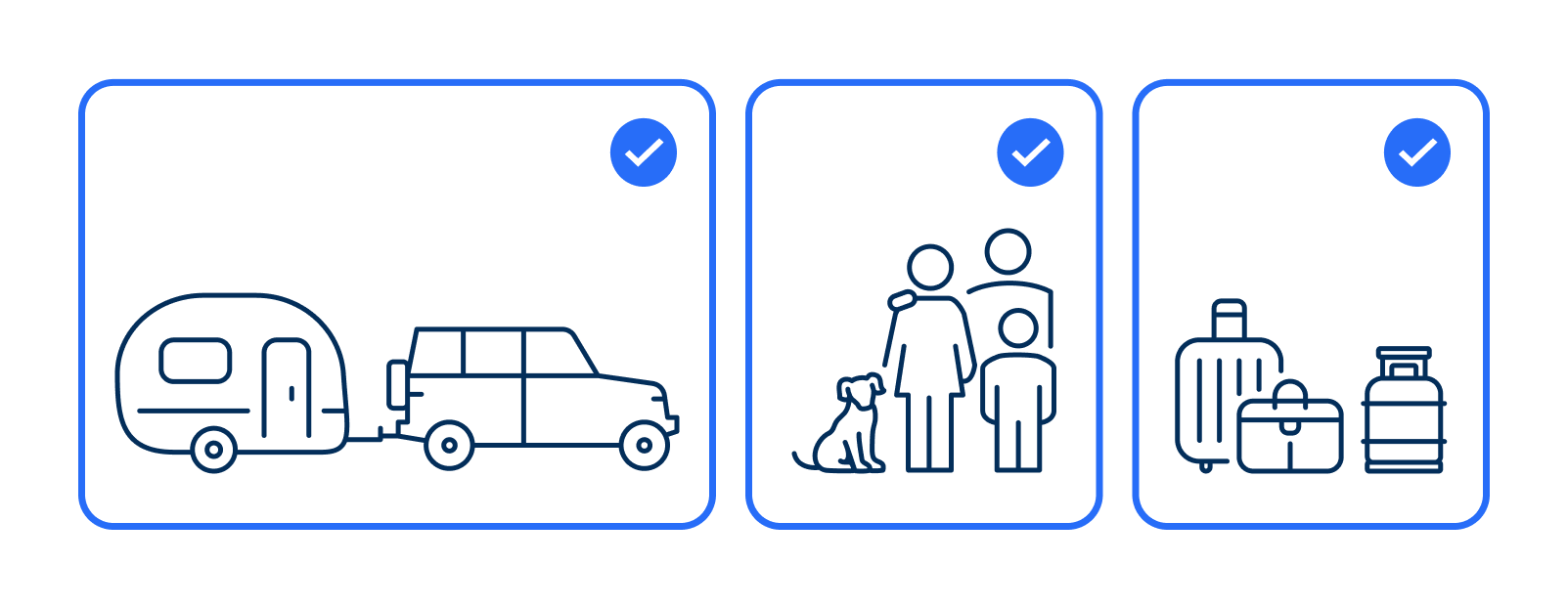
Payload
The maximum combined weight of the passengers and cargo* you can load safely into an empty vehicle (curb weight). Passengers and cargo include anyone and anything you can load into the cab, back seat, trunk, truck bed, and car-top cargo carrying racks.
Payload formula
GVWR - curb weight = your payload capacity
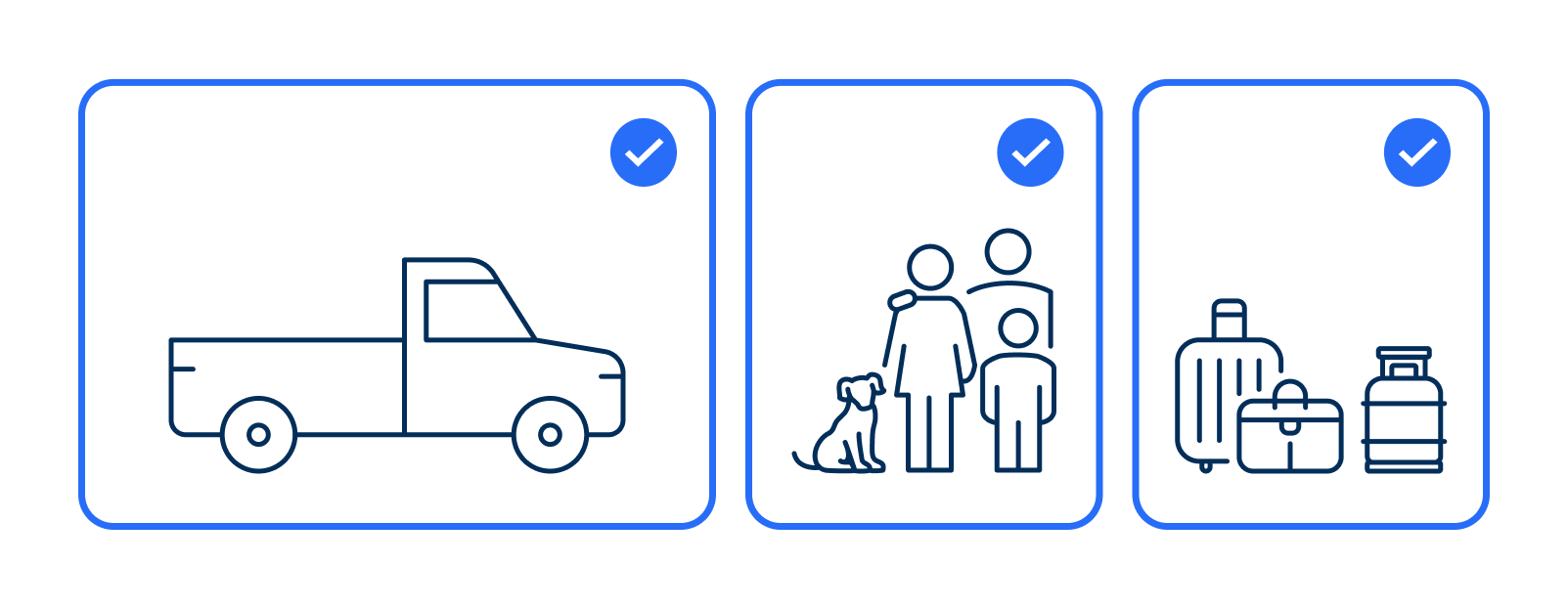
*Include the trailer's tongue weight in your payload calculation if you're towing a trailer.
Towing capacity
A vehicle’s towing capacity is the maximum weight trailer you can safely tow behind your tow vehicle*. Vehicle manufacturers must publish the towing capacity within the owner's manual.
*Never exceed more than 90% of the manufacturer’s maximum towing capacity.
How is towing capacity calculated?
The easiest way to find your towing capacity is to refer to the weight listed in your vehicle's owner manual or to use an online tool such as:
Escape Trailer Towing calculator
Camping World towing calculator
If you want to calculate your towing capacity for a more precise weight, find the GCWR by adding your cargo weight to the sum of the tow vehicle’s GVWR and the travel trailer’s GVWR.
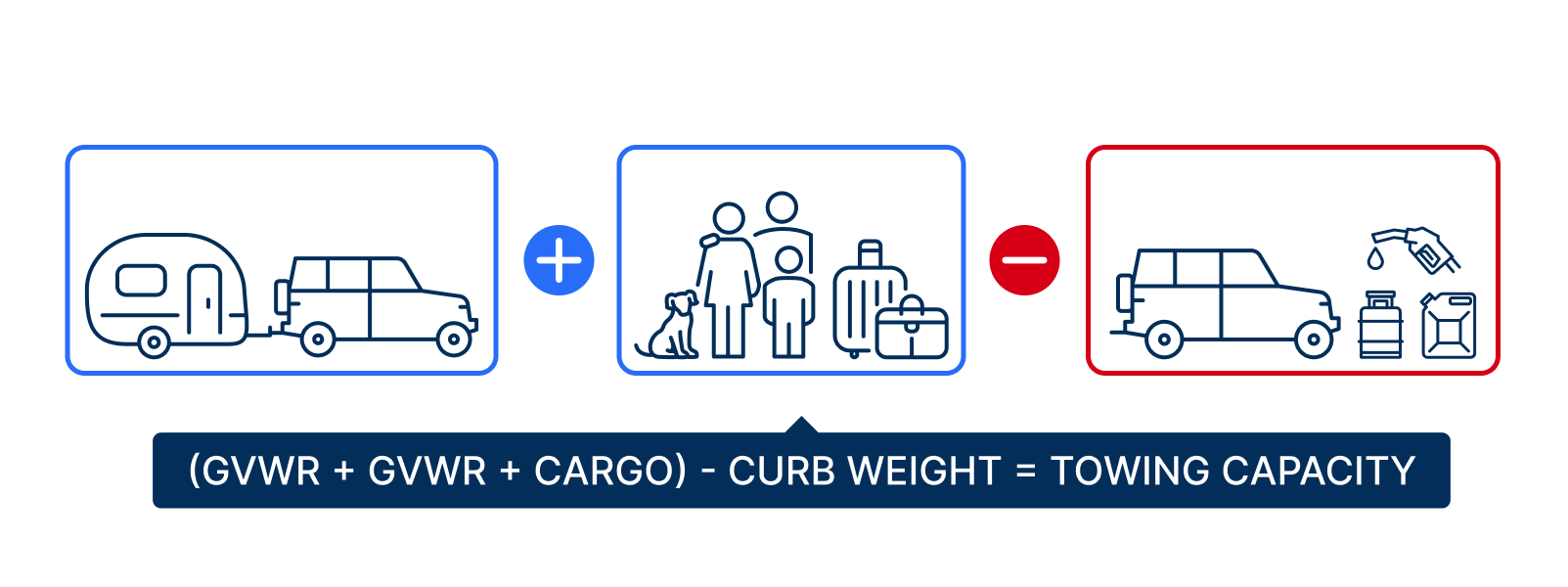
Once you've found your GCWR, locate your tow vehicle's curb weight and subtract that number from your GCWR. This figure is your towing capacity.
If your trailer’s dry weight, passengers, and cargo combined weigh less than your tow vehicle’s towing capacity, the trailer is safe to tow. Conversely, if your trailer’s dry weight, passengers, and cargo combined exceed your vehicle’s towing capacity, the trailer is unsafe to tow.
Want a more in-depth look at towing safety? Check out our companion article on towing a travel trailer safely.
Conclusion
Having the correct towing equipment is required by law. When towing a travel trailer, your vehicle’s cargo capacity and towing equipment must be adequate to handle your cargo load and trailer safely.
Worried that your tow vehicle can't safely tow the trailer you want to rent? Many RVezy hosts offer RV delivery services and will deliver and set up your RV rental at the location of your choice.
